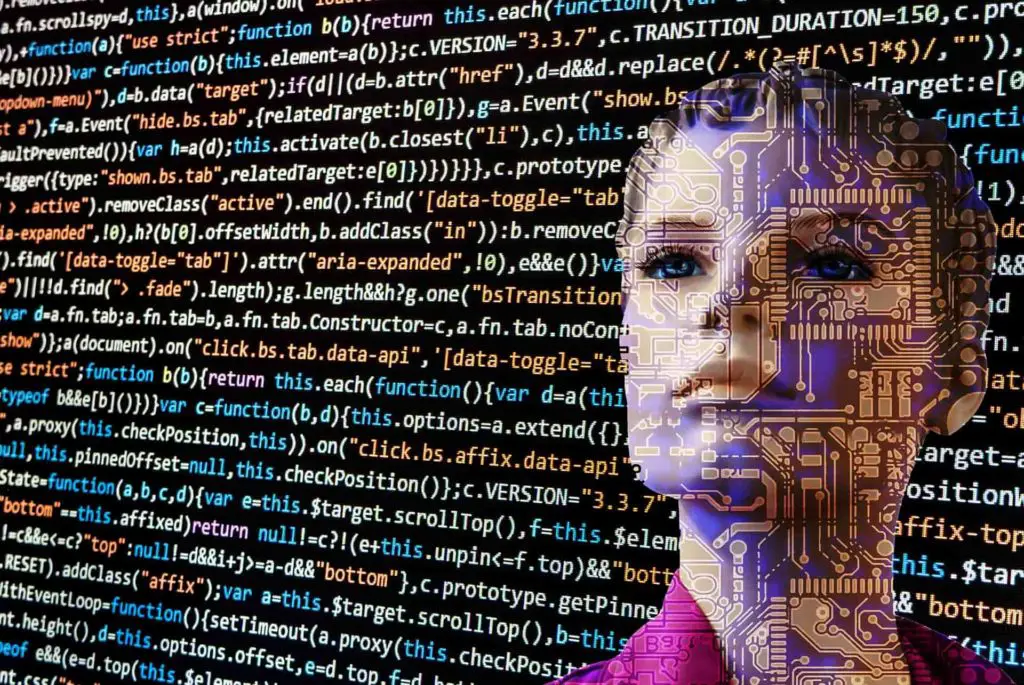Introduction
The field of Artificial Intelligence (AI) has undergone exponential growth and remarkable advancements in at present times. It sets the stage for a future filled with exciting possibilities.
In this article, we embark on a journey to explore the current landscape of AI and uncover ten captivating facts that shed light on its future trajectory. From breakthroughs in machine learning algorithms to the ethical considerations that surround AI, we delve into the frontiers of this transformative technology.

Table of Contents
10 Fun Facts About AI At Present Times
1. AI Is Growing Exponentially
AI has grown dramatically during the last ten years and at present time, revolutionizing many different fields with its innovations. AI research has undergone a revolution because to the development of deep learning algorithms, which are made possible by the availability of enormous datasets and improved processing power.
This proves at present how powerful AI can be in resolving complicated issues and spurring innovation across several sectors. AI has advanced significantly in recent years, outperforming humans in some tasks (such as picture recognition) and pushing the bounds of what robots are capable of.
2. AI in Daily Life
Our daily lives at present, now smoothly include AI, which frequently works in the background without our knowledge. Our entertainment experiences have been improved by tailored suggestions on streaming services like Netflix and Spotify as well as voice assistants like Siri and Alexa, who have become our virtual companions.
Nowadays, AI algorithms are widely used to power applications in industries like marketing, finance, and healthcare. AI is assisting in illness detection, evaluating medical pictures, and advancing customized medicine in the field of healthcare.
The potential of AI to identify fraud and forecast market trends is advantageous to the financial sector. AI-powered navigation systems and the development of autonomous cars are revolutionizing transportation.
3. AI in Ethics
Ethical issues are essential to enable appropriate development and deployment of AI as it becomes more potent and universal at present times. Bias in AI systems is a major worry because it might sustain injustice and prejudice.
For instance, biases based on gender and race have been found in facial recognition systems. As AI frequently uses personal data, privacy is another crucial ethical issue. In order to prevent “black box” AI systems from fostering a lack of trust and responsibility, transparency and explicability are crucial.
Additionally, the effect of AI on employment raises concerns regarding job displacement and the requirement for worker retraining. Organizations and researchers are creating frameworks and rules to assure the appropriate and ethical use of AI in order to meet these ethical problems.
4. AI in Healthcare
Due to AI, the healthcare sector has seen tremendous changes at present times. AI algorithms are being used to forecast treatment results, aid in drug discovery, and help in illness diagnostics. Healthcare workers may make better judgments by using machine learning models that have been trained on extensive medical datasets to help discover trends and make precise predictions.
AI-powered systems can examine X-rays and MRI pictures from the medical field, helping to find illnesses like cancer. AI is also advancing personalized medicine, which adapts a patient’s therapy to their genetic profile. With continuous research aimed at better diagnostic accuracy, enabling more accurate therapies, and improving patient outcomes, the future of AI in healthcare offers enormous promise.

5. AI and Automation of jobs At Present Time
Concerns regarding job displacement and the future of employment have been raised by the possible effects of AI on the workforce. Although it is possible at present times for some tedious and regular jobs to be automated, AI was not created to completely replace people but rather to improve their skills. Robots driven by AI can tackle monotonous chores in sectors like manufacturing, freeing up people to work on more difficult and imaginative projects.
Humans and AI technology are expected to coexist in the future workforce in a symbiotic partnership, with humans using AI systems to increase their productivity and problem-solving skills. Additionally, the growth of AI will open up new career prospects that call for knowledge in its upkeep, maintenance, and ethical oversight.
6. AI for Social Good
AI has the capacity to address major issues and advance societal progress. By enabling telemedicine and making it easier to diagnose diseases in far-off places, AI can assist enhance access to medical treatments, especially in underprivileged areas. By examining satellite photos and data, AI systems can help in disaster response by identifying damaged areas and coordinating relief activities.
By analyzing enormous volumes of environmental data and enabling more effective energy use, AI’s predictive powers can help to mitigate climate change. AI has the ability to bridge the achievement gap in education by offering individualized and flexible learning opportunities.
7. AI and Cybersecurity At Present Time
AI is used in cybersecurity as both a tool and a protective mechanism. Proactive security measures are made possible by AI-powered algorithms that can spot and analyze trends to identify potential cyber attacks. Machine learning models are able to recognize malware, spot malware abnormalities, and defend against phishing attempts.
However, adversarial assaults, in which malevolent actors compromise AI systems, can also make AI susceptible. A crucial area of research is ensuring the security and resilience of AI algorithms. A multifaceted strategy will be needed for cybersecurity in the future, combining AI-driven protection mechanisms with human experience and continual improvements in cybersecurity procedures.
8. Transportation and AI At Present Time
A huge revolution in the transportation sector is being driven by AI technology. This transformation is being led by autonomous vehicles, which use AI algorithms to sense their environment, make judgments, and move safely. Beyond autonomous cars, AI is also being used to improve traffic control systems, which will ease congestion and increase the effectiveness of transportation.
In order to improve route planning, AI-powered algorithms may evaluate real-time traffic data and create predictions. Additionally, supply chain management and logistics are using AI to optimize delivery routes and boost overall operational effectiveness. With the potential for fewer accidents, more accessibility, and more sustainable transportation systems powered by AI, the future of transportation offers immense promise.
9. AI and Innovation At Present Time
Contrary to popular belief, AI may really stimulate and foster human creativity in a variety of contexts. AI algorithms have the ability to create original and cutting-edge works of art, stretching the boundaries of what humans think of as creative expression. AI-driven music composition tools may help musicians create melodies and harmonies, which can inspire innovation and encourage experimentation.
Huge quantities of material may be analyzed by AI algorithms to find trends and produce logical and imaginative written content. Instead than displacing human ingenuity in these creative industries, AI acts as a partner and a source of inspiration. Co-creative AI systems, in which people collaborate with AI algorithms, can produce surprising and exciting creative results.
10. AI and The Future of Humanity
AI has the power to significantly influence how humans will develop in the future. Beyond technological developments, it has sociological, economic, and political ramifications. Undoubtedly, the broad deployment of AI will have an impact on the job market, necessitating a reevaluation of education and training programs to provide people the skills they need to succeed in an AI-driven economy. The legal and ethical frameworks that surround AI will also be extremely important in determining its future course. It is crucial to make sure that AI technologies are created and used in a way that puts human welfare, justice, accountability, and transparency first.
Conclusion
As we examine the current state of AI at present times, it becomes clear that this revolutionary technology has a bright future ahead of it. These 10 fun facts offer helpful insights into the trajectory of AI at present times, including topics like exponential development, ethical issues, the influence of AI on daily life, and its potential in many industries.
We can create a future where AI empowers mankind and results in previously unimaginable improvements and opportunities by adopting responsible development, resolving ethical issues, encouraging collaboration between humans and AI, and using AI on top for societal good of mankind.
Inspiring Bible Verse
James 3: 16 Who is wise and understanding among you? Let him show it by his good life, by deeds done in the humility that comes from wisdom. No matter how intelligent we the populace become as its human by nature, or technologically we have to do good things in our life and placing first priority on the "welfare of mankind". Advancement in technologies is good but it should always Involve mankind with our good deeds and good morals. So that we can glorify our God in Heaven.



